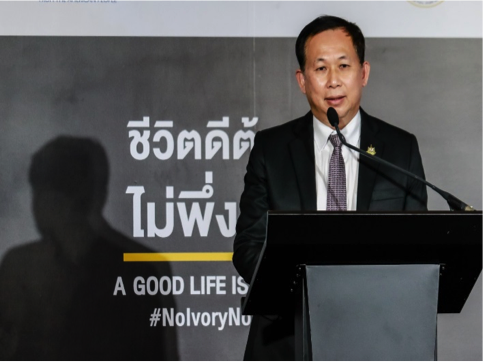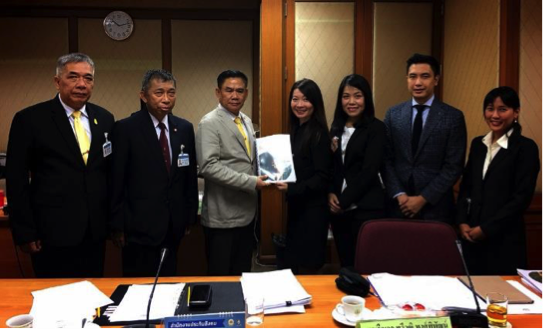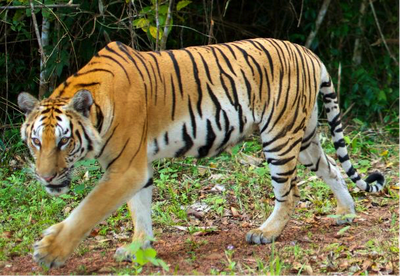USAID Facilitates Groundbreaking Changes to Thailand’s National Wildlife Law
The new WARPA utilized findings from the policy tool "Scaling Efforts to Counter-Wildlife Trafficking Through Legislative Reform" developed by USAID Wildlife Asia, which categorized counter-wildlife trafficking as a serious crime that is given better prosecution responses and enforcement actions.
Transcontinental organized wildlife crime decimates wildlife populations, destroying opportunities for local community wildlife-based livelihoods, and threatens economic development as well as environmental health. Poachers and traffickers are often linked to international criminal networks that take advantage of weak laws and enforcement.
USAID is partnering with the Thai government to help strengthen and modernize previously weak wildlife laws as part of its comprehensive approach to combating wildlife trafficking, which also includes environmental legal enforcement, and demand reduction for wildlife products. Since 2016, USAID Wildlife Asia has been working closely with the Thai Government in reviewing the old 1992 WARPA: providing technical support during the internal review of the draft revision of the 1992 WARPA, co-facilitating the Special Session on Counter-Wildlife Trafficking with the NLA Standing Committee on Environment and Natural Resources, and developing the policy tool.
"Scaling Efforts to Counter-Wildlife Trafficking Through Legislative Reform" was a comprehensive legislative and policy analysis with targeted recommendations aimed at enhancing the counter wildlife trafficking component of Thailand's old WARPA. On January 12, 2018, USAID Wildlife Asia presented the policy tool at the plenary session of the NLA Standing Committee on Natural Resources and Environment, where they agreed to work together on the next steps to sensitize key parliamentarians and undertake further legislative research.

“I didn’t think that the new WARPA will be adopted by the NLA within the official deadline, given the very long consultative process involved in passing new laws. It helped a lot that USAID Wildlife Asia gave the NLA a policy briefing on WARPA. As a result, the committee had a better understanding of the issue, and this facilitated the NLA’s passing of the legislation,” Department of National Parks (DNP), Division of Wild Fauna and Flora Protection Director Somkiat Soontornpitakkool said.
On March 7, 2019, the NLA passed the Wildlife Conservation and Protection Act B.E.2562 (2019), 27 years since the country adopted the 1992 Wildlife Act (WARPA B.E. 2535). The new WARPA introduces new and improved offences. For offences in trafficking of CITES species, maximum fines have increased by 25 times (from $1,226 to $30,656), and maximum imprisonment terms have increased 2.5 times (from 4-10 years). Illegal possession of CITES species is now an offence punishable with an imprisonment term of up to one year and/or a fine of up to $3,065. For reserved species (species that are accorded the highest protection under the law), there is now a minimum fine of $9,196 and/or a minimum imprisonment term of three years, while the maximum imprisonment term increased 3.5 times, from four years to 15 years.

Through the Association of Southeast Asian Nations (ASEAN) Inter-Parliamentary Assembly, USAID Wildlife Asia partners with the Parliaments of ASEAN to review and enhance legislative responses to Counter-Wildlife Trafficking.
In 2020, USAID Wildlife Asia looks forward to supporting the Government of Thailand in the implementation of the new WARPA 2019, particularly in information dissemination and training activities for the DNP and other Thai agencies.


